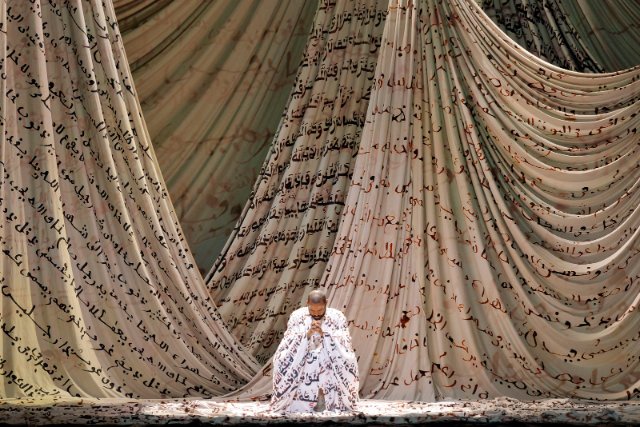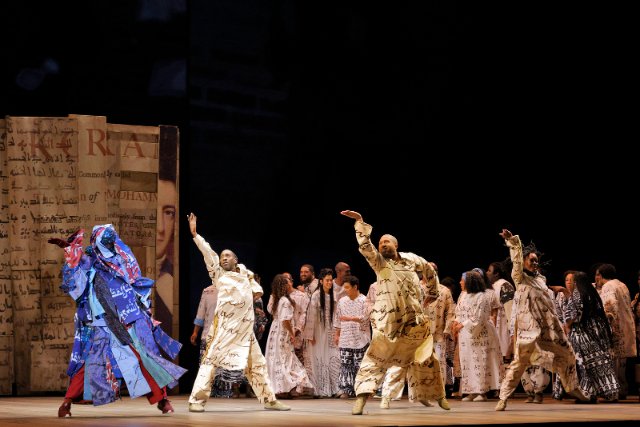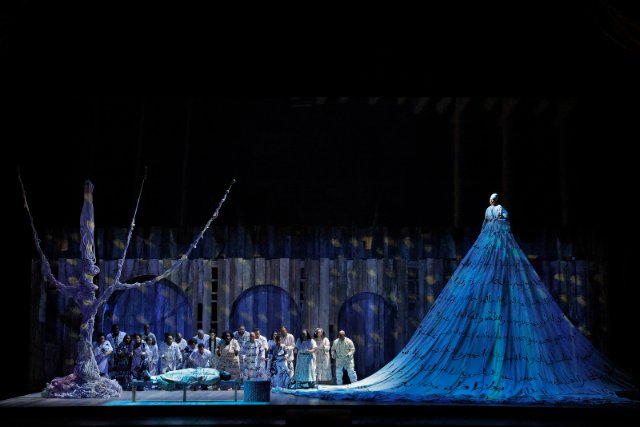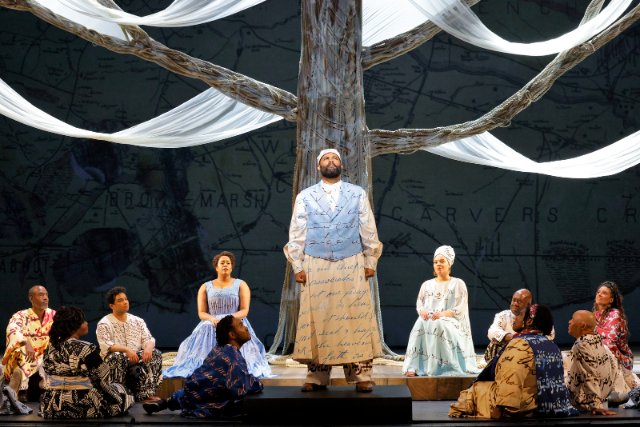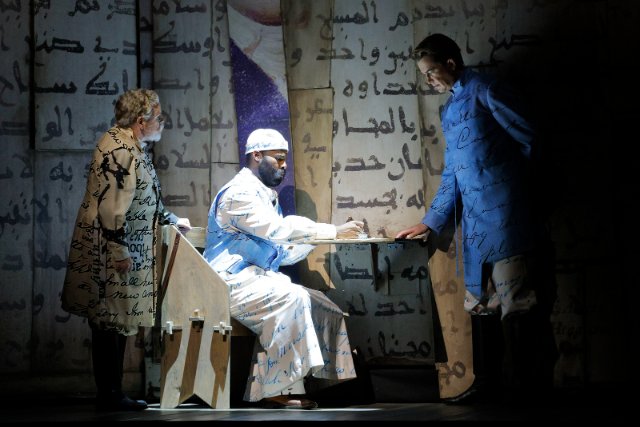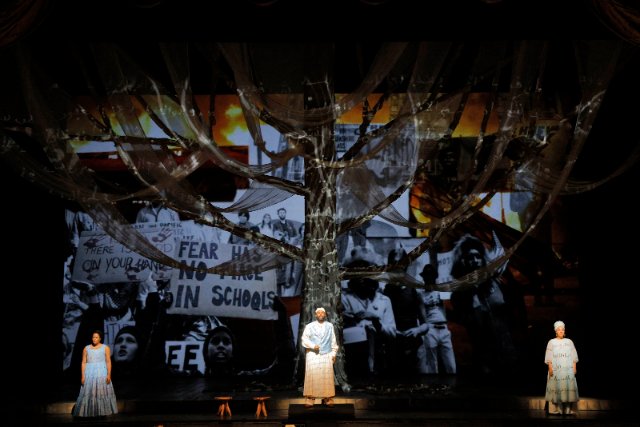Omar
Giddens and Abels' Pulitzer Prize Winning Opera
By: Victor Cordell - Nov 17, 2023
Historically, most new operas have fit into pre-existing musical formulas. Although innovation always introduced changes, bel canto dominated at one point, continuous melody at another, and atonality at a third. Recent trends, driven in part by opera companies seeking different voices and younger audiences, have opened the door to many new idioms with influence from the likes of Chinese and Spanish music.
Impressive additions have come from Black American composers, such as eminence gris Anthony Davis, and the likes of newer entrants like Terence Blanchard and Tamar-kali with no prior experience in opera. Add to that list honored artists Rhiannon Giddens and Michael Abels who break new ground with their historical depiction of Omar bin Said, an enslaved scholar who left writings not only in English, but in his mother tongue of Arabic. Co-commissioned by San Francisco Opera, the piece has won the 2023 Pulitzer Prize for music.
As the driving force in the composition and as the librettist, Giddens has endowed this project with richness, and the music is appealing throughout. Drawing on her Americana roots, she introduces a wide array of musical styles, depending on the location and situation. The opera’s opening in what is today’s Senegal and on the passage to America draws on African and Arabic musical themes, using several types of African drums to replicate their folk rhythms. In the United States, gospel, old time country, and folk become influences.
The storyline follows Omar’s capture; his sale to a malicious slave owner; his escape and incarceration; and his eventual purchase by a more humane master. This final overlord, Owen, encourages his writing and religious thinking, even while arguing that he prayed to a false God, believing the Muslim Allah to be different from the Christian God. While the arc of the narrative is fitting, the opera’s libretto largely lacks liveliness or pathos. And in reaching for epic status, focus on the title character sometimes suffers. Perhaps Omar was a placid individual focused on religion, but his personality comes across as largely inert, and that doesn’t make for an involving character that induces compassion and sympathy.
Incidents of horror such as the transportation across the Atlantic that resulted in many deaths because of desperate conditions and lack of food and water are treated perfunctorily. The physical abuse by slave owners and their strawbosses receive little attention. The degradation of the slave auction block, other than the incident of a son being separated from his parents, seems as tame as an antique auction. And even though arias like “Waiting for the Time to See Jesus” and “I May Be Gone” express the fatalism of slaves, they fail to galvanize the emotions.
Powerful moments do arise, but most are brief. The exception is the evocative multiple-segment closing sequence. Starting with a strong chorus piece on stage, the cast fans into the audience. And while this device has been used in other stage productions, the surround-sound effect of the delightful harmonies is exceptional. On stage, Jamez McCorkle as Omar then sings in soliloquy fashion about faith, and finally transforms with a costume change from slave to modern free man in a profound visual statement.
Striking staging complements the fine music. Beautiful Arabic calligraphy often generously adorns the stage. Even when the set is spare, it appeals, as when a single tree’s trunk and branches are represented by snarled rope and its leaves by long trains of gauzy muslin.
The opera house acts as the temple of the human voice, valuing the penetrating strength of the trained, unamplified vocalist. On this occasion, the principals were underpowered in Act 1. Voices were generally audible but lacked the volume and depth expected. Sometimes opera singers routinely hold back a bit while their voices warm, but this lasted over an hour. Act 2 differed. The two female leads, Julie (Brittany Renee) and Fatima (Taylor Raven), proved to have fine voices. McCorkle in particular seemed a different singer with a fluid sound, and it may be that his part is so demanding in Act 2 that he saves his voice in the first act.
“Omar” does deal with very serious historic issues, revealing elements such as the existence of Muslim slaves that many people will not be familiar with. Although the narrative should produce more emotional involvement, the overall arc, the music, and the staging offer a significant and entertaining evening.
“Omar” with music and libretto by Rhiannon Giddens and music by Michael Abets, is co-produced by San Francisco Opera, Los Angeles Opera, and Lyric Opera of Chicago, and plays at War Memorial Opera House, 301 Van Ness Avenue, San Francisco, CA through November 21, 2023.

